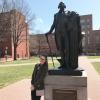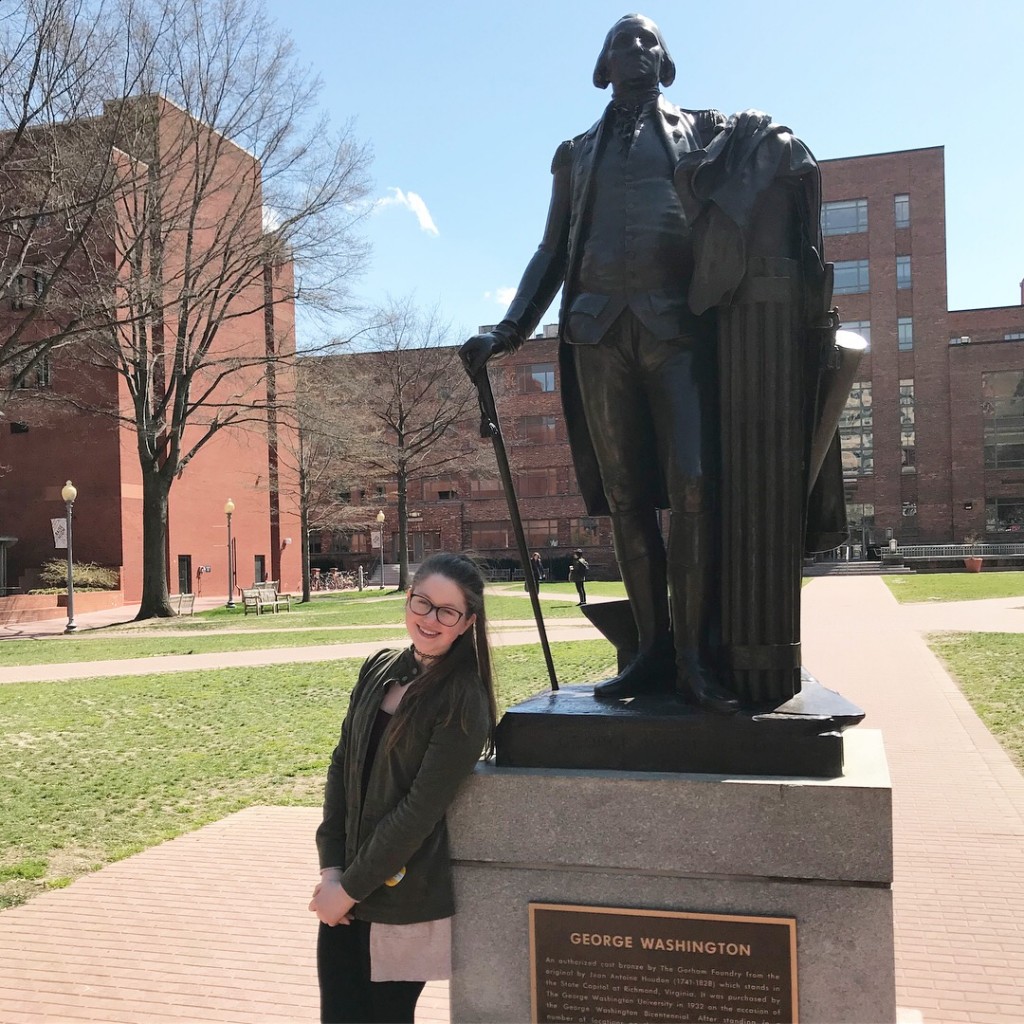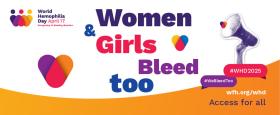It’s probably fine
Nobody else in my family had never heard of it, I was”My name is Catherine. I am 16. I have Von Willebrand’s Type 1. This is my story.
When I was five, I fell and hit my nose, which proceeded to bleed for three days. My parents were, of course, concerned, so they took me to the doctor. I remember that day so well even now. I forgot my shoes (we later learned I have terrible ADD, whoops!) but we went in anyway. They took an X-Ray and confirmed that my nose was unbroken. That’s when I first heard them say it: “It’s probably fine.”
My parents believed them, and why shouldn’t they? If doctors say there’s nothing to worry about, then there’s nothing to worry about. My childhood went on. It was assumed that I wasn’t really getting more bruises than my older sister, I was just fair skinned so they showed up better. I would get cuts that would bleed for a very long time, and I heard “Oh, she just has thin blood.”
Thin blood. What does that even mean? Is that a thing? Is it a problem? It is said so nonchalantly. It is followed by “it’s probably fine.”
When I was 13, I got my first period. It’s probably fine was drilled into my head at this point. It became my mantra. I figured my periods were normal. I was going through one of the boxes cheekily marked “MORE THAN THREE MONTH SUPPLY!” in less than a month. I set alarms on my phone to wake up every two hours at night, and would still leak through. Thank God for Catholic school uniforms, I would think to myself when I brought extra skirts with me to change into when I soaked through one. Lucky for me, I had duplicates, and I still have my collection of matching shorts and leggings that I could switch between without drawing attention.
I was embarrassed to tell my mother how much I was struggling. I figured the problem was in my management skills, and I didn’t want to seem irresponsible. I told myself that women had been dealing with this since the dawn of mankind. I wasn’t special, why should I whine? It occurred to me that maybe my period was a little heavy, and I consulted the reliable Dr. Google. I was informed that if you had a heavy period, there would be clotting. There was no clotting at all. Therefore, it must be pretty light, right? I was crippled by pain from cramps. I would pass out on my period- once in front of my entire school during may crowning (I’m still a legend there). I would shake and have to leave class to go to the nurse. If I was given Advil, it just got worse.
Things got really bad my sophomore year, when I started having nosebleeds. My nose would hush for an hour or more, once after three and a half hours sitting in the chair at the corner of the nurse’s office, having gone through two boxes of tissues, she told me if it kept up she would have to send me to the hospital. I was taken aback.
“It’s probably fine,” I assured her.
She was not convinced. We compromised by calling my father to bring over the counter decongestant spray to force my capillaries to contract. The school nurse told my dad that we needed to see the pediatrician, she was concerned that I may be anemic. We went, but no labs were ordered, on the grounds that “it’s probably fine.”
My busy school schedule changed at the end of the semester, and suddenly I had time to sleep. And yet, I was always still so tired. My mother and I returned to the doctor, and she insisted they run labs. They through in the VWD test only as a formality, and we were confused when it came back positive.
We had never heard of it. I had learned in school that only boys had bleeding problems like hemophilia. I had always been told I was fine. Looking back at the warning signs, it is clear that I’ve never been fine at all.
We are still trying to find the best method of raising my iron levels. With prescription strength supplements, I raised it from a 3 to a 16 over the course of a year. They took me off to see if my levels would continue to raise, or at least remain steady. I dropped back down to a seven over the course of just two months.
I see more and more articles on women whose health issues are not taken seriously, and it makes my blood boil (and as if I don’t already have enough issues with it!). Knowing that my struggle is valid means so much to me, despite the changes it has brought to my life. My two-hour wake up alarms have been discarded in favor of alarms to take my many medications. My friends do not understand, but they try. I speak about my blood disease, which makes some people uncomfortable, but I’m surprised that the majority of people I’ve spoken to are interested to learn more. Really, there’s one big thing I’ve learned over the course of this journey:
Sometimes it’s not probably fine, and that’s ok.
Hey Catherine, I just turned 14 this month and started when I was 11. I'm really glad that you wrote this because this is exactly what i've been trying to stress to people. Many members of my family (besides my mom and grandmother) assume since you can't physically see the problem anymore, it's not there. My hematologist and GYN put me on a strong oral contraceptive to stop my periods completely. My bleeding disorder is a type of storage pool deficiency called delta storage pool deficiency and is more rare in the bleeding disorder community because it affects granules instead of factors. So many people also assume that I don't know what I'm talking about or "It's probably fine" since I am only a teenager, so it made me happy to see other people around my age talking openly about their bleeding disorder and taking the initiative to speak about things happening that other people don't feel comfortable talking about. Thanks
Awe girlie I'm so glad others can relate. You just keep going, I've found that the more I talk about it the more people tend to accept it. You are valid, you problems are valid, and know that no matter what others say. I've managed to find another girl at my school who also has a bleeding disorder, and it's so great to talk to someone who actually understands what's up without me having to explain. I hope you can find those people who make you feel comfortable too. I am so incredibly touched that I can help others by sharing my story. The best of luck to you.
Thank you so much for sharing your story! Your honesty and vulnerability is inspiring!
About The Author
You May Also Like

On April 17th join us to celebrate World Hemophilia Day and raise awareness about hemophilia and…
Share your voices, stories, artwork and videos.



